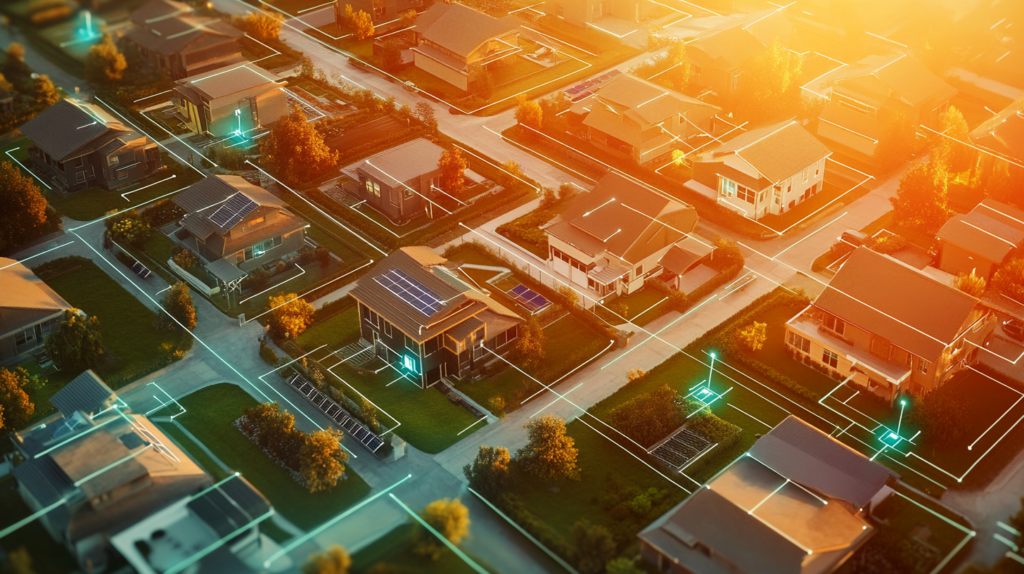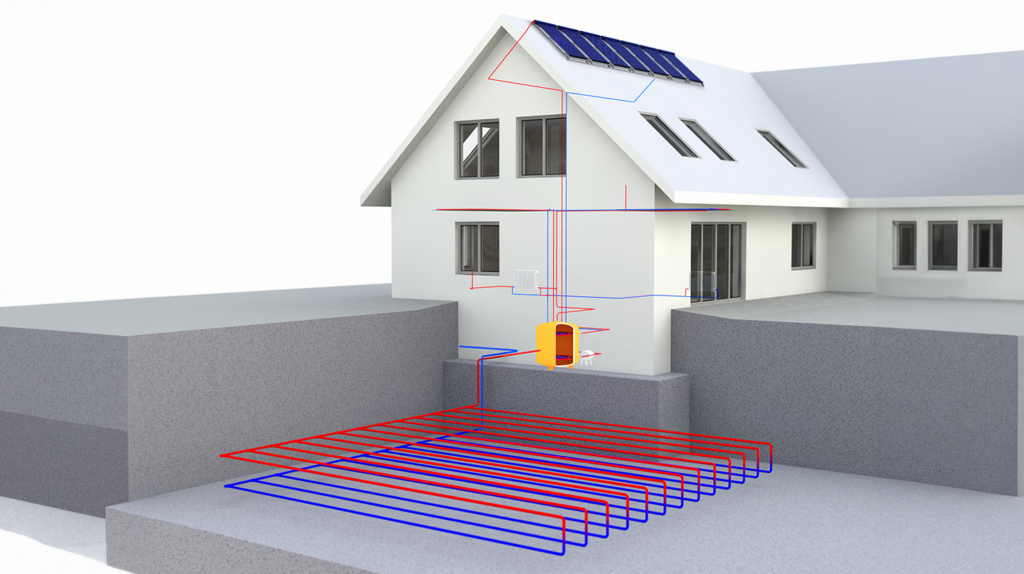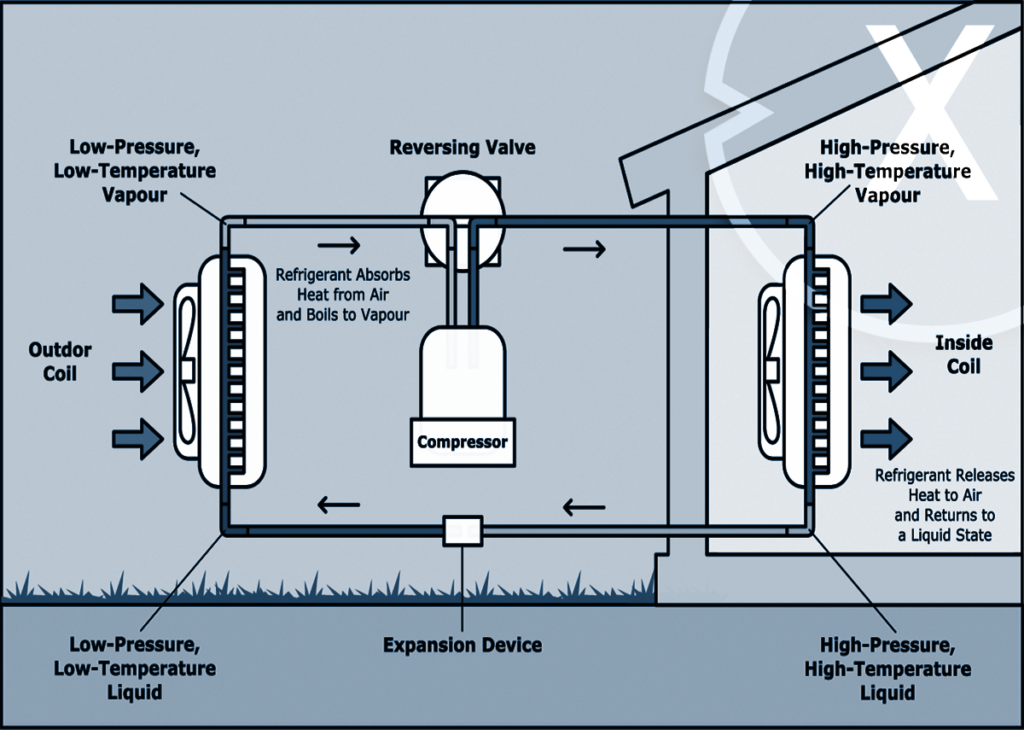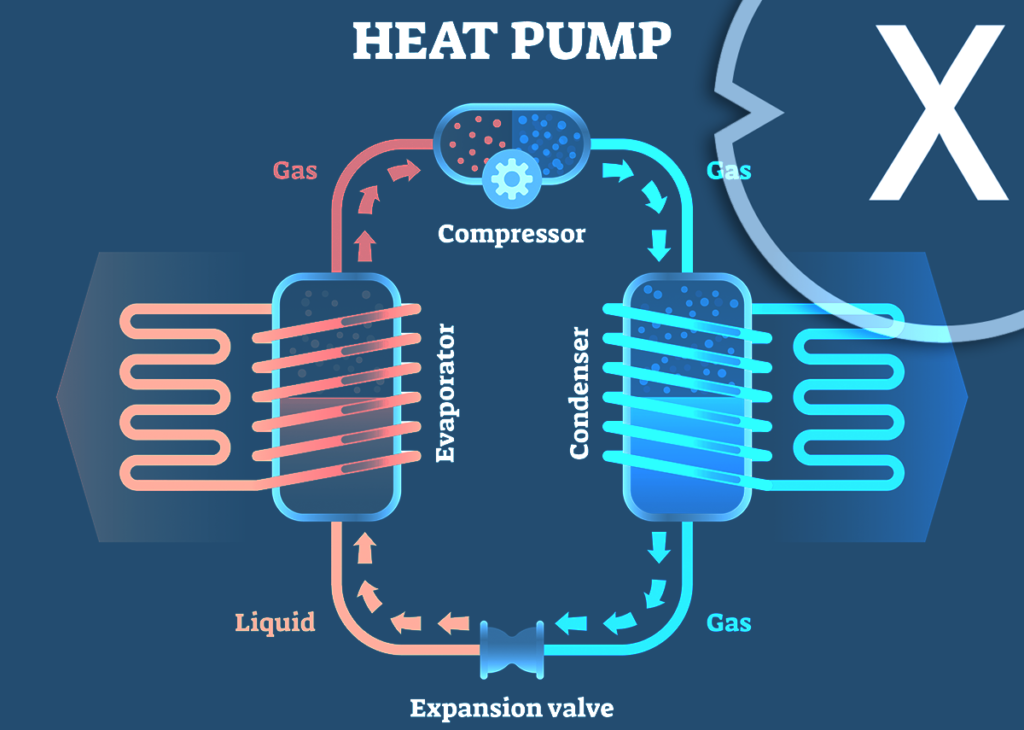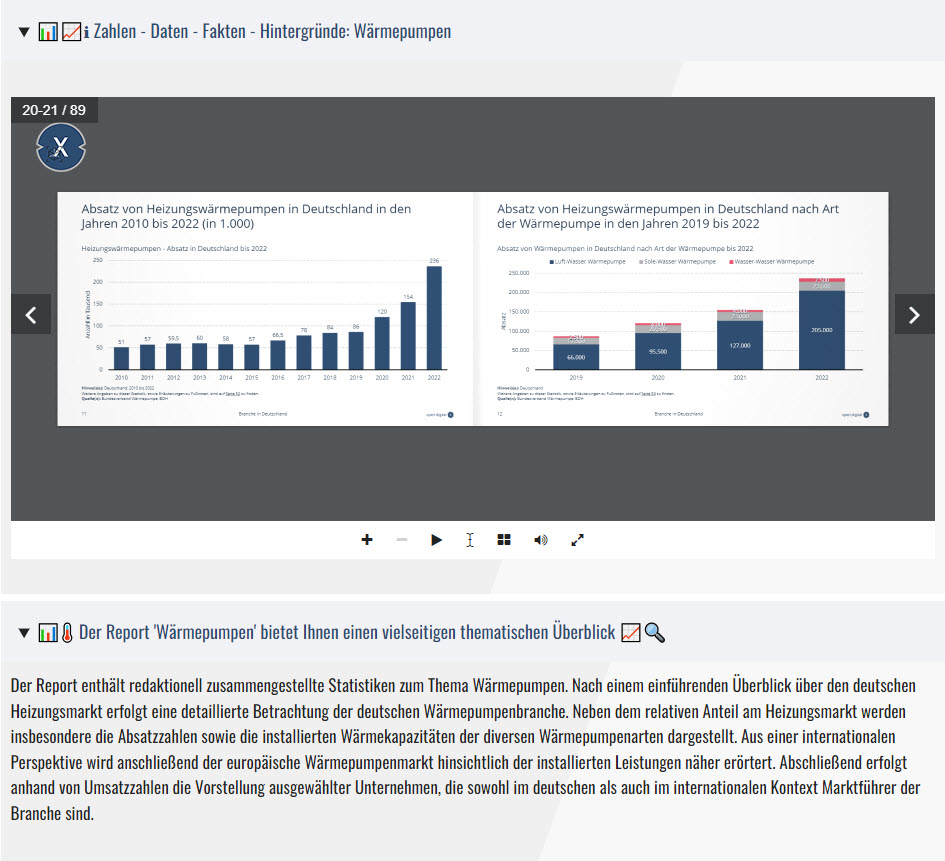Published on: December 20, 2024 / Update from: December 20, 2024 - Author: Konrad Wolfenstein

The efficiency of heat pumps: expert opinions and crucial aspects – this cannot be repeated often enough! – Image: Xpert.Digital
The quiet revolution: Why heat pumps should have a place in every home
Heating without compromise: This is how efficient and climate-friendly modern heat pumps are
In recent years, heat pumps have established themselves as one of the most advanced technologies for heating and cooling buildings. Their ability to efficiently use environmental energy makes them an attractive alternative to traditional heating systems based on fossil fuels. Experts around the world emphasize the outstanding performance and high efficiency of heat pumps, which makes them a central element in the discussion about sustainable energy solutions.
Basic principle and efficiency
The operating principle of a heat pump is based on the transfer of thermal energy from a lower temperature source to a higher temperature level. Environmental energy is extracted from air, earth or water and converted into usable heat for heating and hot water. Heat pumps can generate 2.5 to 5 times the heat energy from one kilowatt hour of electricity, which corresponds to an efficiency of 250 to 500 percent. In comparison, modern oil or gas heating systems achieve efficiencies of around 80 to 90 percent. This significant difference results from the use of free and almost inexhaustible environmental energy by the heat pumps.
Types of heat pumps
There are different types of heat pumps, which vary depending on the heat source and area of application:
- Air-water heat pumps: They use the outside air as a heat source and are particularly easy to install as no drilling or excavation is required.
- Brine-water heat pumps: These extract heat energy from the ground. They require the installation of ground collectors or ground probes, but offer greater efficiency due to the constant ground temperature.
- Water-water heat pumps: They use groundwater as a heat source, which enables very high efficiency. However, the installation is more complex due to legal and technical requirements.
The meaning of the annual performance factor (JAZ)
The annual performance factor is a crucial indicator of the efficiency of a heat pump over a whole year. A JAZ of 4.0 means that the heat pump generates 4 kilowatt hours of heat from 1 kilowatt hour of electricity. The higher the JAZ, the more efficiently the heat pump works. Factors that influence the JAZ include the quality of the installation, the type of heating system (e.g. underfloor heating vs. radiators) and the energetic nature of the building. A well-insulated house enables a higher IZ because the heat pump can work with lower flow temperatures.
Efficiency in cold regions
A frequently expressed doubt concerns the performance of heat pumps in cold climates. However, Scandinavian countries such as Sweden, Norway and Finland have shown that heat pumps can work efficiently even at low outside temperatures. Modern heat pumps are designed so that they can extract heat from the environment even at temperatures of -20°C. The high prevalence of heat pumps in these countries highlights their reliability and efficiency under extreme conditions.
Environmental friendliness and CO₂ reduction
The use of heat pumps contributes significantly to reducing CO₂ emissions. Since they primarily use environmental energy and only require a small proportion of electrical energy, they significantly reduce the need for fossil fuels. If the electricity required comes from renewable sources, the operation of a heat pump can be almost climate-neutral. This supports the goals of the energy transition and makes an important contribution to climate protection.
- Future solution with 'cheap heating' for your own home: How heat pumps become more intelligent and therefore cheaper - creative image: xpert.digital
- 10 practical top ten tips for homeowners: What do you have to consider when installing a heat pump in existing buildings? – Image: Xpert.Digital
- What advantages do heat pumps offer compared to other heating systems – Image: Costazzurra|Shutterstock.com
- Heat pump heating How it works – Image: Xpert.Digital
- Over half (54 percent) of the heat pump market collapses Uncertainty caused by the Building Energy Act and other factors - Image prototype: Xpert.Digital
- Heat pump functionality – Image: Xpert.Digital
Economic aspects and funding opportunities
Although the purchase costs for heat pumps can be higher than for conventional heating systems, these investments are often amortized by the lower operating costs and the long service life of the systems. In addition, many countries offer government funding programs, low-interest loans or tax breaks to make it easier to switch to heat pump technology. These financial incentives reduce the initial investment and increase the attractiveness of heat pumps for homeowners and businesses.
Integration into intelligent energy systems
Heat pumps can be easily integrated into intelligent energy systems and smart grids. In combination with photovoltaic systems, buildings can be operated almost energy self-sufficiently. Excess solar energy can be used to operate the heat pump, thereby optimizing self-consumption and reducing the load on the grid. In addition, intelligent control systems enable operations to be adjusted to variable electricity tariffs, which can lead to further cost savings.
Technological advancements
Continuous research and development in the area of heat pump technology leads to ever more efficient and powerful systems. Advances in refrigerants, the use of more environmentally friendly materials with lower global warming potential, and improved compressor technologies are helping to increase the efficiency and environmental impact of heat pumps. Noise production has also been significantly reduced in modern models, making it easier to use in densely populated areas.
Challenges and solutions
Despite the many advantages, there are also challenges when implementing heat pumps:
- Space requirements: Some heat pump systems, particularly those with geothermal probes, require sufficient space for installation and drilling.
- Initial costs: The higher initial costs can be a hurdle, although long-term savings are possible.
- Professional installation: The efficiency of a heat pump depends heavily on professional planning and installation.
These challenges can be overcome through careful planning, advice and use of funding. In addition, the training of specialist personnel helps to ensure the quality of the installations and maximize the efficiency of the systems.
Heating market & heat pump industry – numbers, data, facts and background
Heating market & heat pump industry – figures, data, facts and background – Image: Xpert.Digital
Application examples and success stories
Heat pumps have proven their performance in numerous projects around the world. Heat pumps are used successfully from single-family homes to multi-family complexes to commercial and industrial applications. For example, some communities in Germany have equipped entire residential areas with heat pumps, which has led to significant energy savings and improved air quality.
Given rising energy costs and the global focus on climate protection, heat pumps will play an even greater role in the future. The technology offers the potential to sustainably transform the building sector and reduce dependence on fossil fuels. With further innovation and increased political support, heat pumps could become standard in new buildings and renovations.
The high efficiency of heat pumps makes them a key technology for a sustainable energy future. Their ability to effectively use environmental energy while reducing energy consumption and CO₂ emissions represents a significant advantage over traditional heating systems. Through integration into intelligent energy systems and continuous technological development, heat pumps offer solutions to the challenges of climate change and energy supply . With increasing acceptance and support from politics and society, heat pumps face a promising future in which they will make a significant contribution to the global energy transition.
Suitable for:


